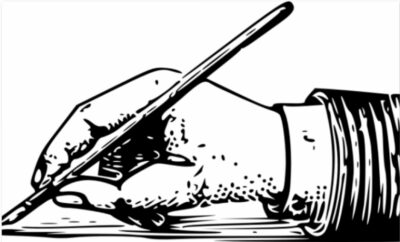Born in Freeport, IL Kenneth E. Behring was raised from age 4 in the small town of Monroe, Wisconsin. He died in June at age 91 leaving his wife of 69 years, four of five sons, 10 grandchildren and two great grandchildren. His father worked in a lumberyard and his mother did house cleaning and laundry for others during the depression era.
At age 6, Behring sold fishing worms; he mowed lawns and caddied for golfers and by age 10 he was moving milk cans around in a cheese plant after arising at 4 AM. His mother once told him, “You better develop a personality. You are not going to make it on your looks.” At age 16 he was selling sporting goods and paint at a Montgomery Ward store.
He was a good running back for his high school team and was hoping to play for the University of Wisconsin after graduation. A knee injury ruined his career and he dropped out after one semester. By the time Kenneth was 21 in the late 1940’s, he had married his high school sweetheart, Patricia Riffle and opened a used car lot in Monroe, WI, earning $50,000 a year and accumulating $1 million in assets by age 27.
Behring moved to Fort Lauderdale, FL in 1956 and as he began construction on a family home, he received an offer for the yet-unfinished home that would provide a $10,000 profit. Accepting the offer, he founded Behring Construction Company and started building homes in the area. His company developed land that had been wetlands and open fields; by 1963 he was the largest single-family home builder in Florida and tenth largest in the USA. Enjoying the great success of developing land and building homes, Behring moved to the San Francisco Bay area in 1972.
His success in Florida was amplified in California to the extent that he and partner Ken Hofman bought the Seattle Seahawks Football team for less than $100 million in 1988. Upon moving team headquarters to Anaheim, CA in 1996, the change was highly criticized resulting in the sale of the team in 1997 to Paul Allen, co-founder of Microsoft; the price was $200 million.
Kenneth Behring may be a billionaire or just a very rich multi-millionaire; reports say his net worth is about $495 million while other reports suggest he is a billionaire. His way of life seemed to be very busy and it is possible that he wasn’t concerned about the amount of money he had accumulated but the good things he could do with it as a legacy.
Kenneth Behring founded the Blackhawk Museum in Danville, CA where some 90 classic cars are displayed. In 1997 he pledged $20 million to the Smithsonian Institution’s National Museum of Natural History intending it to be used for educational purposes and as an endowment for the museum’s new Kenneth E. Behring Family Museum’s Hall of Mammals that opened in 2003. That space now features 274 mammal specimens, many fossils and a selection of interactive teaching/learning experiences.
Another $80 million was pledged in 2000 to the Smithsonian’s National Museum of American History with the agreement that $20 million would be allocated to an area honoring “American Legends & Legacies” as a tribute to deceased people who had made great contributions to the United States and who epitomized the American Spirit.
Another $16 million was to be set aside for an exhibit named “The Price of Freedom: Americans at War” that opened in 2004. Also, $4 million was allocated for an exhibition about, “The American Presidency.”
In 2000 Mr. Behring donated $7.5 million to the University of California at Berkeley’s Principal Leadership Institute focused on public school principals. In 2005 he founded the WaterLeaders Foundation, a nonprofit organization that promotes safe drinking water worldwide.
Perhaps his capstone project was the establishment of The Wheelchair Foundation in 2000. As of 2013 the foundation had given away 940,000 wheelchairs to people with disabilities in 152 countries around the world. Kenneth Behring said when he placed a 6-year old Vietnamese girl in a wheelchair, she found hope and he felt joy.
Kenneth Behring once said, “Money is only good if you can put it to use. If you spread it out, it grows things.”
Dick Baynton

